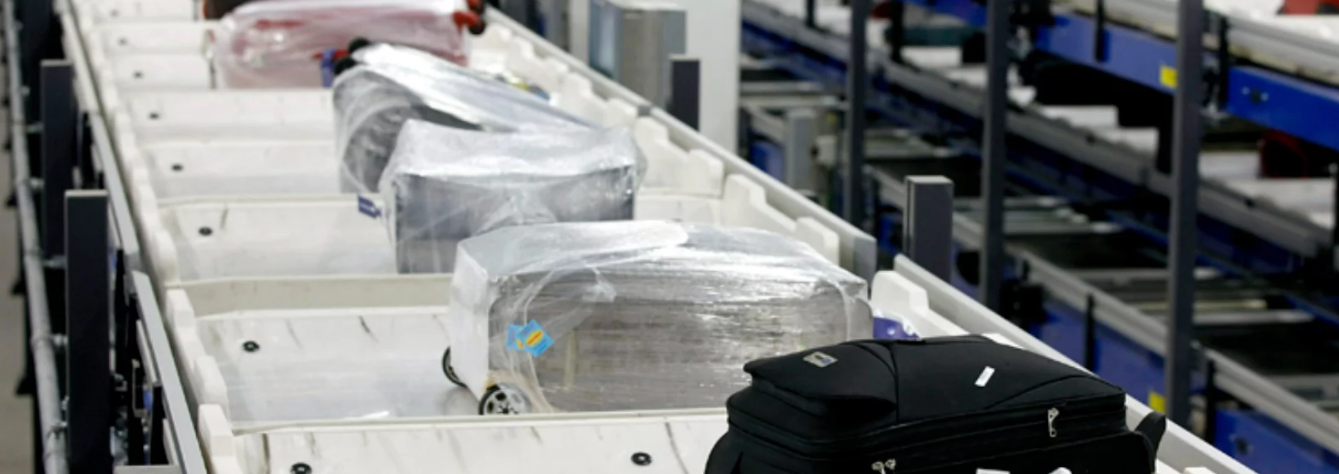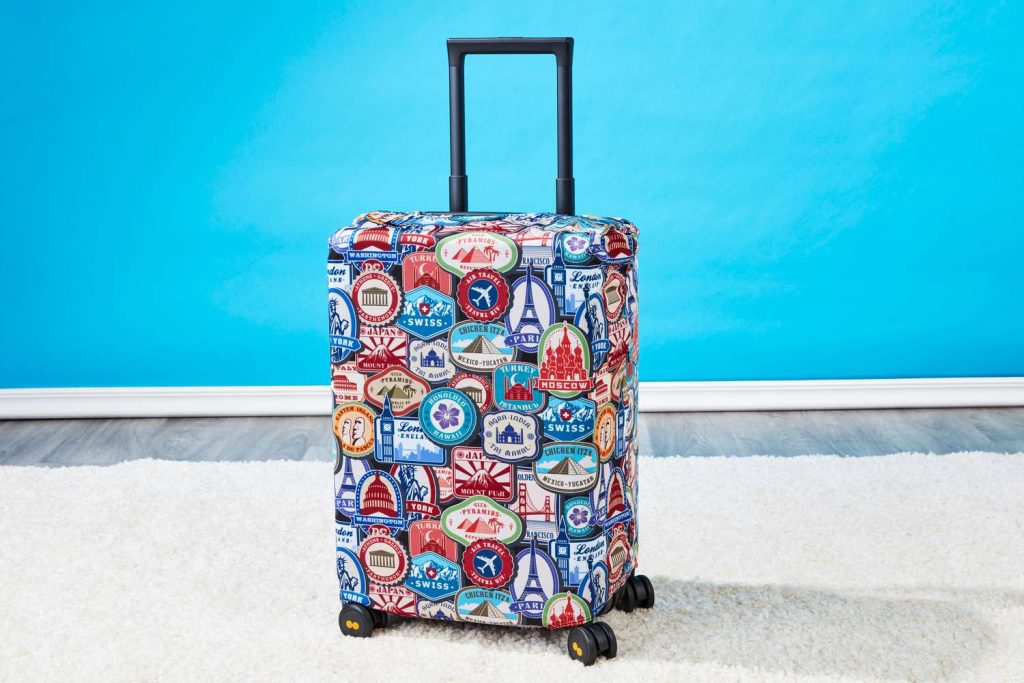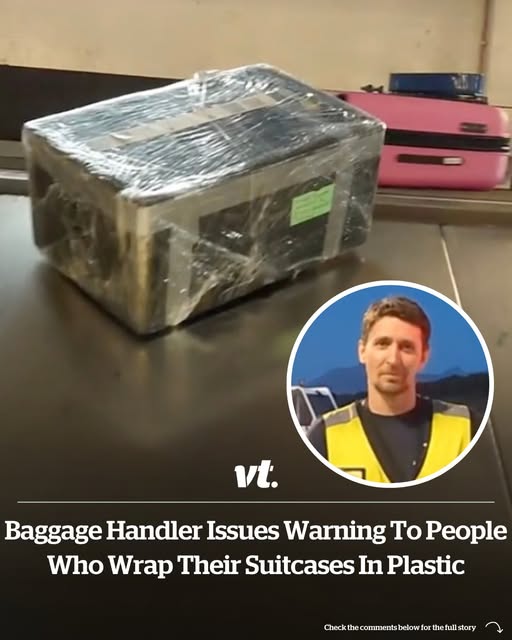Wrapping your suitcase in plastic might seem like a smart way to protect your belongings during air travel, but airport insiders are increasingly warning against this practice. Baggage handlers and travel experts have raised concerns that plastic-wrapped luggage can cause more problems than it solves.
Why Plastic-Wrapped Luggage Can Be Problematic
Adrian, a baggage handler who shares insights on TikTok under the handle @teh_deagz, highlighted the issues with plastic-wrapped suitcases. In a video, he demonstrated how such bags often get stuck in the airport’s conveyor systems, leading to delays or even missed flights. He also noted that items like rubberized bags, improperly tagged luggage, and baby strollers can face similar issues.

Travelers’ Reactions and Concerns
Despite these warnings, many travelers continue to wrap their luggage in plastic, citing concerns about theft and damage. Some argue that the rough handling of bags justifies the extra layer of protection. However, experts suggest that the drawbacks of plastic wrapping, such as potential delays and environmental impact, outweigh the perceived benefits.
Expert Recommendations for Protecting Your Luggage
Instead of plastic wrapping, travel experts recommend investing in durable suitcases equipped with TSA-approved locks. These locks allow security personnel to inspect luggage without causing damage. Additionally, using tracking devices can help monitor your bag’s location throughout your journey. Packing carefully and choosing luggage with sturdy handles and wheels can also minimize the risk of damage.
Environmental Considerations
Beyond logistical concerns, plastic wrapping contributes to environmental waste. The single-use plastic often ends up in landfills, raising sustainability issues. Travelers are encouraged to consider eco-friendly alternatives, such as reusable luggage covers or simply relying on the durability of well-made suitcases.
Common Reasons People Use Plastic Wrapping
Many travelers turn to plastic wrap for a sense of security, especially when flying to or from destinations where baggage theft or damage is a concern. It’s marketed as a protective layer against scratches, spills, tampering, or the elements. Some airports even offer plastic-wrapping services at an extra cost, making it convenient for anxious travelers. However, this added layer may make it more difficult for airport security to inspect bags when necessary, especially if the luggage isn’t equipped with a TSA-approved lock. In some cases, security may be forced to cut through the plastic wrap, undoing the effort—and the cost—of wrapping it in the first place.
Better Alternatives to Plastic Wrap
Instead of using single-use plastic, travel experts recommend several better and more sustainable options:
- Hard-shell luggage: Provides superior protection without the need for extra wrapping.
- TSA-approved locks: Allow security to open and relock your suitcase without damage.
- Luggage covers: Reusable and eco-friendly, these offer protection from scuffs while being airport-friendly.
- GPS luggage trackers: Devices like Apple AirTags can help you keep tabs on your suitcase during travel.
- Proper labeling: Always ensure your luggage is clearly tagged with up-to-date contact information to avoid misplacement.

Environmental Impact of Plastic Wrapping
Perhaps the most significant downside to wrapping luggage in plastic is its environmental impact. The cling film used is rarely recyclable and is usually discarded after a single use. With thousands of travelers wrapping their bags each day, this results in a significant amount of plastic waste that contributes to global pollution and landfill overflow. As awareness of environmental issues grows, more travelers are being encouraged to opt for reusable or sustainable packing methods. Some airports and travel organizations are even considering restrictions or extra fees for single-use plastic wrapping in the future.
Conclusion
While wrapping your suitcase in plastic might offer a sense of security, it’s important to weigh the potential downsides. From causing delays in baggage handling systems to contributing to environmental waste, the practice has several drawbacks. Opting for robust luggage, using TSA-approved locks, and packing thoughtfully are more effective strategies for ensuring your belongings arrive safely at your destination.

















